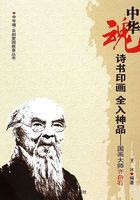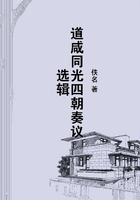Why, it was asked, should not the cost of the Irish war be borne by the Irish insurgents? How those insurgents had acted in their mock Parliament all the world knew; and nothing could be more reasonable than to mete to them from their own measure. They ought to be treated as they had treated the Saxon colony. Every acre which the Act of Settlement had left them ought to be seized by the state for the purpose of defraying that expense which their turbulence and perverseness had made necessary. It is not strange that a plan which at once gratified national animosity, and held out the hope of pecuniary relief, should have been welcomed with eager delight. A bill was brought in which bore but too much resemblance to some of the laws passed by the Jacobite legislators of Dublin. By this bill it was provided that the property of every person who had been in rebellion against the King and Queen since the day on which they were proclaimed should be confiscated, and that the proceeds should be applied to the support of the war. An exception was made in favour of such Protestants as had merely submitted to superior force; but to Papists no indulgence was shown. The royal prerogative of clemency was limited. The King might indeed, if such were his pleasure, spare the lives of his vanquished enemies; but he was not to be permitted to save any part of their estates from the general doom. He was not to have it in his power to grant a capitulation which should secure to Irish Roman Catholics the enjoyment of their hereditary lands. Nay, he was not to be allowed to keep faith with persons whom he had already received to mercy, who had kissed his hand, and had heard from his lips the promise of protection. An attempt was made to insert a proviso in favour of Lord Dover. Dover, who, with all his faults, was not without some English feelings, had, by defending the interests of his native country at Dublin, made himself odious to both the Irish and the French. After the battle of the Boyne his situation was deplorable. Neither at Limerick nor at Saint Germains could he hope to be welcomed. In his despair, he threw himself at William's feet, promised to live peaceably, and was graciously assured that he had nothing to fear. Though the royal word seemed to be pledged to this unfortunate man, the Commons resolved, by a hundred and nineteen votes to a hundred and twelve, that his property should not be exempted from the general confiscation.
The bill went up to the Peers, but the Peers were not inclined to pass it without considerable amendments; and such amendments there was not time to make. Numerous heirs at law, reversioners, and creditors implored the Upper House to introduce such provisoes as might secure the innocent against all danger of being involved in the punishment of the guilty. Some petitioners asked to be heard by counsel. The King had made all his arrangements for a voyage to the Hague; and the day beyond which he could not postpone his departure drew near. The bill was therefore, happily for the honour of English legislation, consigned to that dark repository in which the abortive statutes of many generations sleep a sleep rarely disturbed by the historian or the antiquary.800Another question, which slightly and but slightly discomposed the tranquillity of this short session, arose out of the disastrous and disgraceful battle of Beachy Head. Torrington had, immediately after that battle, been sent to the Tower, and had ever since remained there. A technical difficulty had arisen about the mode of bringing him to trial. There was no Lord High Admiral; and whether the Commissioners of the Admiralty were competent to execute martial law was a point which to some jurists appeared not perfectly clear. The majority of the judges held that the Commissioners were competent; but, for the purpose of removing all doubt, a bill was brought into the Upper House;and to this bill several Lords offered an opposition which seems to have been most unreasonable. The proposed law, they said, was a retrospective penal law, and therefore objectionable. If they used this argument in good faith, they were ignorant of the very rudiments of the science of legislation. To make a law for punishing that which, at the time when it was done, was not punishable, is contrary to all sound principle. But a law which merely alters the criminal procedure may with perfect propriety be made applicable to past as well as to future offences. It would have been the grossest injustice to give a retrospective operation to the law which made slavetrading felony. But there was not the smallest injustice in enacting that the Central Criminal Court should try felonies committed long before that Court was in being. In Torrington's case the substantive law continued to be what it had always been. The definition of the crime, the amount of the penalty, remained unaltered. The only change was in the form of procedure; and that change the legislature was perfectly justified in making retrospectively.
It is indeed hardly possible to believe that some of those who opposed the bill were duped by the fallacy of which they condescended to make use. The feeling of caste was strong among the Lords. That one of themselves should be tried for his life by a court composed of plebeians seemed to them a degradation of their whole order. If their noble brother had offended, articles of impeachment ought to be exhibited against him: Westminster Hall ought to be fitted up: his peers ought to meet in their robes, and to give in their verdict on their honour; a Lord High Steward ought to pronounce the sentence and to break the staff.
There was an end of privilege if an Earl was to be doomed to death by tarpaulins seated round a table in the cabin of a ship.
These feelings had so much influence that the bill passed the Upper House by a majority of only two.801 In the Lower House, where the dignities and immunities of the nobility were regarded with no friendly feeling, there was little difference of opinion.















